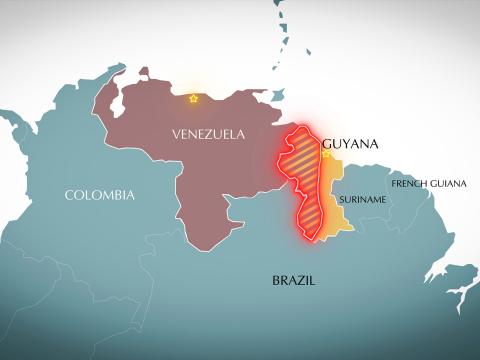Internet Power and Control May Fall Simply Into China’s Lap
Last of a multipart series.
The success of China’s foray into Internet control ultimately may be determined by the growth of the Internet itself, according to an Internet expert. While China seeks economic benefit from having its prime technology companies become the providers of choice for Internet customers, it also looks forward to being able to control Internet use outside of its borders. The ongoing evolution of the Internet, particularly its spread into a growing number of devices, may be China’s best asset for realizing its aims.
“China is becoming a power player around the Internet in a variety of different ways,” says Laura DeNardis, interim dean of the School of Communication at American University. DeNardis is the author of several books on the Internet, including The Internet In Everything and The Global War for Internet Governance. She explains that this power comes from the rise of Chinese companies, the outsourcing of production and manufacturing by other countries’ companies into China, and its involvement and expertise in standards-setting bodies. What China is doing with Internet governance entails a collection of the activities that are necessary to keep the Internet operational.
Despite having titled a book about the topic, DeNardis says the term “Internet governance” is an oxymoron. A lot of it involves the private sector, which controls much of the infrastructure. Standard-setting institutions, others that help connect networks at Internet exchange points and those that perform technical coordination functions such as routing and addressing all play key roles. Then actual government roles, such as regulation and other constraints, come into play.
Keeping in mind that this is an ecosystem, DeNardis describes it as a private-sector-led multistakeholder model where no single player is in charge of all Internet governance responsibilities. In contrast, China’s approach to Internet governance is more of cyber sovereignty. “The state has a much more powerful role in control of the network,” she offers. “Not only do they control the network, but also they co-opt the network in order to propel their political aims—such as censoring, surveillance and enacting control over citizens.”
Many of these efforts are spearheaded by Huawei’s technology push in the commercial marketplace. The Chinese company has proposed a different Internet architecture, called the New IP, that would allow for more innovative services but greater centralized control over the network and its data. DeNardis doesn’t see why the Internet must be changed for new capabilities.
“What is the need they are trying to address?” she asks. “I have not yet heard a need that [the New IP] could address that’s not already being addressed in the current structure of the Internet protocol or is being worked on by the institutions of Internet governance.” She notes that the Internet has changed constantly over the decades to accommodate new capabilities.
Technical standards have “an entrenched conservative momentum,” she states. So much has been invested in technology built around the standards that define the Internet today, their removal is extremely unlikely. “I don’t think that China is going to overturn the [existing] Internet protocol because of how entrenched it is, how much commitment there is, and how it’s successfully embodying and supporting all kinds of different services.”
She adds that the New IP is not anywhere near a standard yet, but instead is just a discussion and research area. Huawei likely will continue pursuing it, possibly connecting with other areas so the technology doesn’t become tangential. The only way Huawei can become more dominant is to play in the existing standards space, she says. The concern is what the company overlays atop its technology.
China already has “an X-Acto knife approach” to censorship as part of its successful censorship regime, DeNardis continues. Governments around the world may shut down parts of the Internet if they want to, so Internet censorship already is upon us.
And this capability can increase with spread of the Internet. The Internet of Things is becoming the Internet of Everything, and this ubiquitous connectivity can work both ways. Government malfeasance can be extended into realms previously off limits, and repression capabilities can be enhanced.
The Internet of Things also is the Internet of Self, where people are connected to a variety of fitness devices and monitors, DeNardis offers. The body becomes part of the digital object space, along with buildings, transportation systems and manufacturing machines.
In one of her books, DeNardis poses the question of what would happen to the Internet if humans suddenly left the Earth. One answer is that cameras on city streets would still provide video surveillance, robots would still be moving merchandise around automated warehouses, bitcoin would be mined and people’s automatic loan payments would be paid, to name a few. “It’s no longer possible to distinguish between the virtual world and the physical world—they’re interconnected,” she states. More objects than ever before have both a physical capability and a cyber digitally embedded capability.
“The Internet is in everything,” DeNardis declares. “You can’t distinguish virtual and physical worlds any more. Therefore, you can’t distinguish cyber policy from real-world policy.”
This is a world-changing development that is still evolving. DeNardis offers that the transition from a digital world into a cyber physical world, in which the Internet is omnipresent, may have greater consequences than even the transition from an agrarian society to an industrial one. It completely transforms work, especially with robots performing an increasing number of tasks once the purview of humans. And, of course, privacy shrinks with the constant collection of data.
“It’s not optionally done,” she states. “It’s endemic to the very operation of the system. It shows how the Internet is no longer just a communication network; it’s a control network in which more things than people are connected.
“And, control over that infrastructure is a proxy for political power,” DeNardis declares.
Instead of just reaching across borders to disrupt words and financial information, an adversary could reach across its borders and disrupt the physical objects that are connected to the Internet, she continues. This is not limited to China and its influential Huawei technology; it also applies to adversaries such as Russia, Iran and North Korea.
“If a country is interested in exerting influence over another country using digital means … it’s in their interest to have interoperability and to use the existing entrenched technologies in order to carry out that disruption,” DeNardis states.
“China is extremely effective at enacting control over the Internet,” she continues. “But the Internet of Things is going to give it greater power over citizens.
“You see the connections between tracking where someone is and social screening—or whether someone has had coronavirus or whether someone can get on a plane. As the Internet continues to go into all these devices … thinking about the Internet as a control network is much more appropriate than a communication network.”
Look for a feature article based on this series in the September issue of SIGNAL Magazine.





Comments